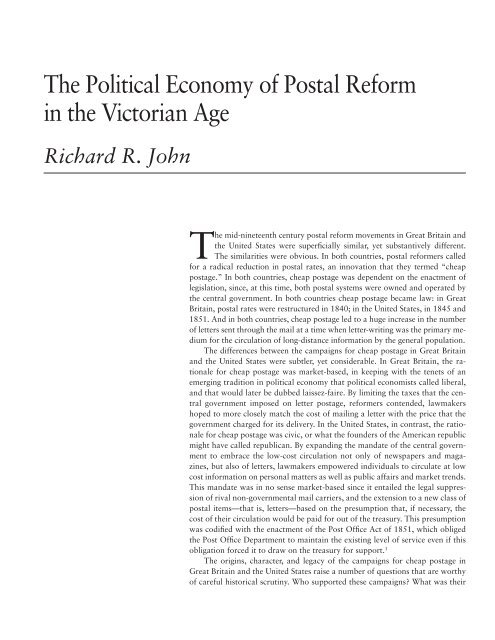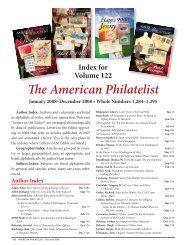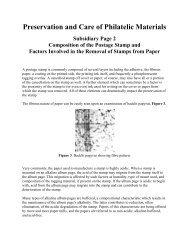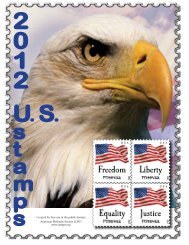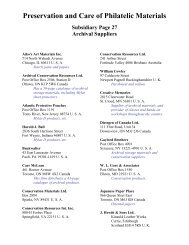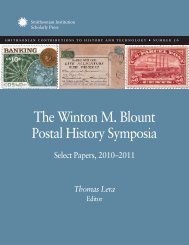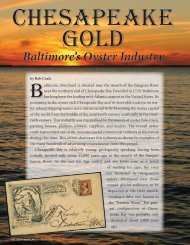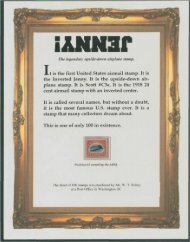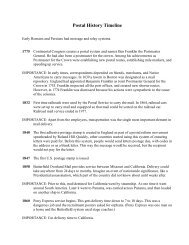The Winton M. Blount Postal History Symposia - Smithsonian ...
The Winton M. Blount Postal History Symposia - Smithsonian ...
The Winton M. Blount Postal History Symposia - Smithsonian ...
- No tags were found...
You also want an ePaper? Increase the reach of your titles
YUMPU automatically turns print PDFs into web optimized ePapers that Google loves.
<strong>The</strong> Political Economy of <strong>Postal</strong> Reformin the Victorian AgeRichard R. John<strong>The</strong> mid- nineteenth century postal reform movements in Great Britain andthe United States were superficially similar, yet substantively different.<strong>The</strong> similarities were obvious. In both countries, postal reformers calledfor a radical reduction in postal rates, an innovation that they termed “cheappostage.” In both countries, cheap postage was dependent on the enactment oflegislation, since, at this time, both postal systems were owned and operated bythe central government. In both countries cheap postage became law: in GreatBritain, postal rates were restructured in 1840; in the United States, in 1845 and1851. And in both countries, cheap postage led to a huge increase in the numberof letters sent through the mail at a time when letter- writing was the primary mediumfor the circulation of long- distance information by the general population.<strong>The</strong> differences between the campaigns for cheap postage in Great Britainand the United States were subtler, yet considerable. In Great Britain, the rationalefor cheap postage was market- based, in keeping with the tenets of anemerging tradition in political economy that political economists called liberal,and that would later be dubbed laissez- faire. By limiting the taxes that the centralgovernment imposed on letter postage, reformers contended, lawmakershoped to more closely match the cost of mailing a letter with the price that thegovernment charged for its delivery. In the United States, in contrast, the rationalefor cheap postage was civic, or what the founders of the American republicmight have called republican. By expanding the mandate of the central governmentto embrace the low- cost circulation not only of newspapers and magazines,but also of letters, lawmakers empowered individuals to circulate at lowcost information on personal matters as well as public affairs and market trends.This mandate was in no sense market- based since it entailed the legal suppressionof rival non- governmental mail carriers, and the extension to a new class ofpostal items—that is, letters—based on the presumption that, if necessary, thecost of their circulation would be paid for out of the treasury. This presumptionwas codified with the enactment of the Post Office Act of 1851, which obligedthe Post Office Department to maintain the existing level of service even if thisobligation forced it to draw on the treasury for support. 1<strong>The</strong> origins, character, and legacy of the campaigns for cheap postage inGreat Britain and the United States raise a number of questions that are worthyof careful historical scrutiny. Who supported these campaigns? What was their


